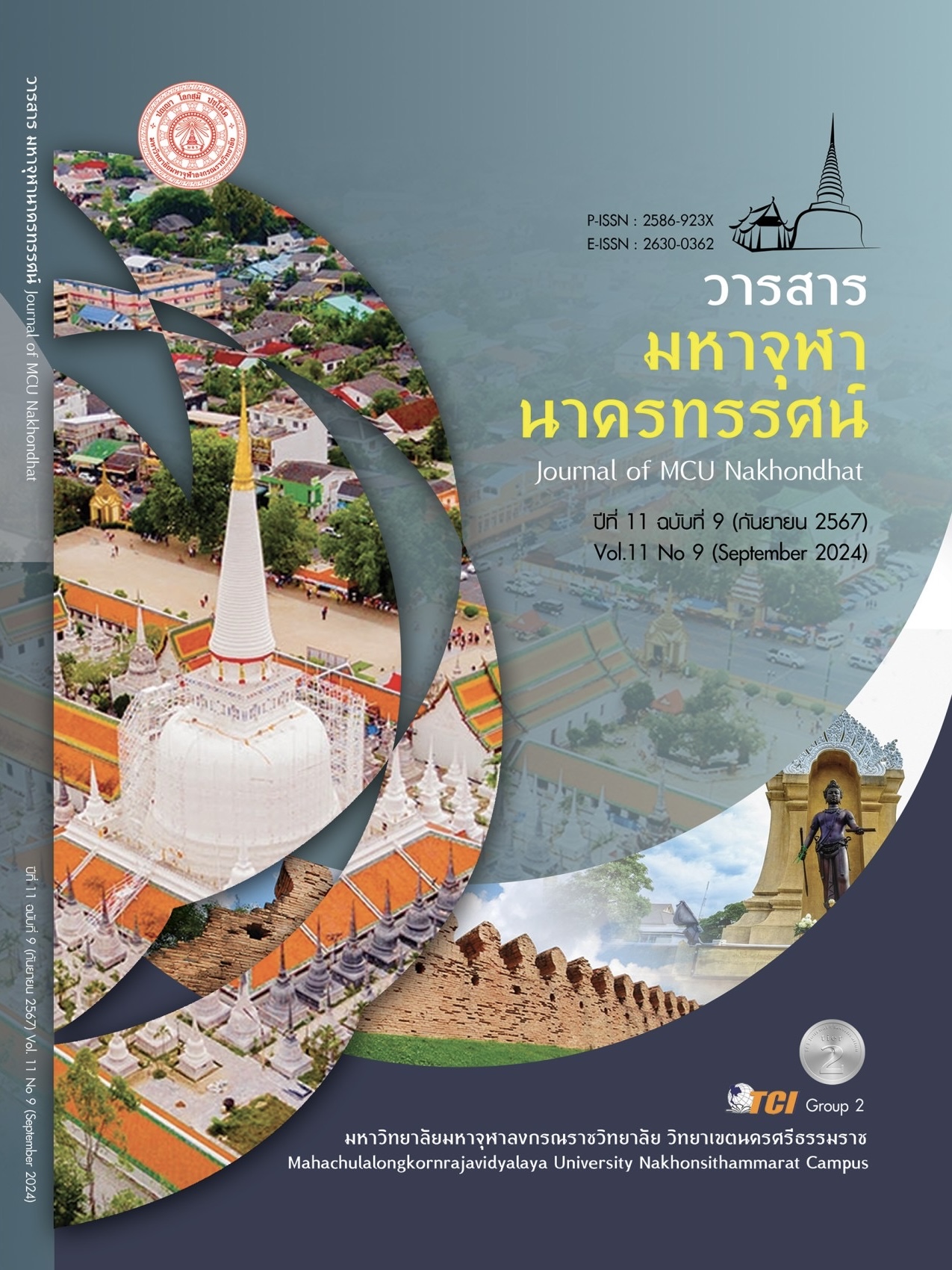THE GUIDELINES FOR IMPROVING THE SAFETY LEADERSHIP OF ADMINISTRATORS IN UNIVERSITIES IN GUANGDONG
Main Article Content
Abstract
The purpose of this research was to study the development of safety leadership of university administrators in Guangdong Province. This research used a mixed-method research, consisting of 1) Safety advice, 2) Safety concerns, 3) Safety control, and 4) Safety influence. The population of this research was 278 university administrators in Guangdong Province, selected by purposive sampling. The interview group consisted of 15 administrators from 5 universities, 3 people from each university, totaling 15 people. Experts in assessing the adaptability and feasibility of leadership improvement of administrators consisted of 5 senior administrators from the university. The research instrument was a questionnaire with a reliability of .98. The statistics used for data analysis were percentage, mean, and standard deviation. The results of the research found that the current safety leadership of administrators in all 4 dimensions was at a high level. When considering the results of this research from highest to lowest levels, they were as follows: The highest level was safety guidance, followed by safety influence, and safety concern was at the lowest level. Guidelines for developing safety leadership of executives in 4 areas, totaling 60 measures: 15 measures to strengthen safety guidelines, 15 measures to increase safety concerns, 15 measures to enhance safety controls, and 15 measures to increase safety influence. The results of the assessment of the adaptability and feasibility of guidelines for improving safety leadership of executives must include readiness for changes in global society and the development of excellent organizational management leadership competencies.
Article Details

This work is licensed under a Creative Commons Attribution-NonCommercial-NoDerivatives 4.0 International License.
References
Ajith, S. et al. (2022). A Framework for Systematic Assessment of Human Error in Construction Sites-A Sustainable Approach. Civil Engineering and Architecture, 43(10), 1725-1737.
Anandh, K.S. et al. (2020). Investigation on the factors affecting lifestyle of professionals in the construction industries (Kerala and Tamil Nadu). International Journal of Integrated Engineering, 42(12), 246-252.
Bhagwat, K. & Delhi, V. S. K. (2022). A Systematic Review of Construction Safety Research: Quantitative and Qualitative Content Analysis Approach. Built Environment Project and Asset Management, 52(12), 243-261.
Chen, C. (2021). Construction of Campus Safety Prevention System Based on Risk Assessment. Educational Science Research, 42(7), 41-46.
Geng, S. & Che, S. (2021). Research and Exploration of Legislation on Campus Safety Management: Analysis Based on Legislation on Safety Management of Local Schools Nationwide. Safety, 42(11), 72-80.
Ke, X. et al. (2023). Safeguarding high-quality development with high-level security: Interpretation of the "Guangdong Province Safety Production Regulations". People's Voice, 39(9), 37-39.
Li, X. et al. (2020). Analysis of the Causes of Safety Accidents in University Laboratories and Countermeasures. Educational Teaching Forum, 40(35), 376-377.
Shen, S. & Zhou, H. (2020). Modernization of School Safety Governance: Basic Principles and Future Directions. Educational Research, 41(8), 121-132.
Tan, T. (2021). The safety leadership for hotel staff safety motivation and behavior of the driving mechanism studies. In master's degree thesis, the overseas. Chinese university.
Vigneshwar, R. V. K. & Shanmugapriya, S. (2023). Investigating the Factors Affecting Construction Site Productivity-A Case of India. Engineering, Construction and Architectural Management, 46(30), 963-985.


